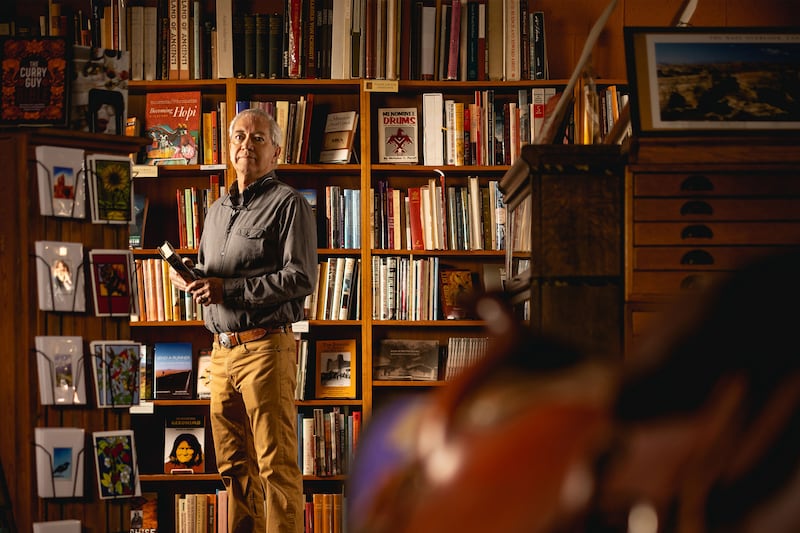It was at least a mile down a dirt road at the far side of Arches National Park to the site of Edward Abbey’s memorial service on May 20, 1989. But for many of the 500 people in attendance, it didn’t matter what it took to get there — the spirit of Abbey, the acclaimed (and controversial) author, demanded their presence. Montana-based writer Rick Bass had hitchhiked after his rental car ran out of gas. Author and veteran Doug Peacock showed up late, sneaking in quietly because he was on the lam, running from the FBI.
The service started with readings and got rowdier from there. The details of what went down that night have been clouded, but after the dust cleared from the celebration, the rebellious literati of the American West had come up with a plan for the best way to solidify Abbey’s memory.
A bookstore.
Moab, Utah, needed a bookstore — a reliable place to buy books in the desert, as well as a memorial to Abbey’s legacy and the canon that he’d created. A place dedicated to the rangy deserts of the Colorado Plateau, the rowdy writing about environmental issues and the way the West is changing. They decided they needed to start that, because, as Abbey once wrote, “Freedom begins between the ears.”
So they did. By February ’90, a measured nine months later (which was no coincidence, I’m sure), bookseller Jose Knighton, who had been selling books in Salt Lake City, had wrangled funders and opened the doors on Back of Beyond Books, a dusty desert bookshop dedicated to writing about the West.
A place dedicated to the rangy deserts of the Colorado Plateau, the rowdy writing about environmental issues and the way the West is changing.
In the three decades since, in a world where independent bookstores have had to fight consolidation, algorithmic culture flattening and the creep of placeless online retail, Back of Beyond has carried on and thrived. It’s an example of how a local literary groove can be a part of a community.
“It actually hasn’t changed much, even though Moab has changed,” says writer Brooke Williams, who was part of the revelry at Abbey’s wake.
In the crowded strip of Moab’s main drag, it sits between T-shirt shops and tchotchke stores. Abbey’s “Desert Solitaire” is still the store’s number one seller, although, as a sign of change, Amy Irvine’s recent rejoinder, “Desert Cabal,” and guides to the increasingly popular ORV routes trail close behind.
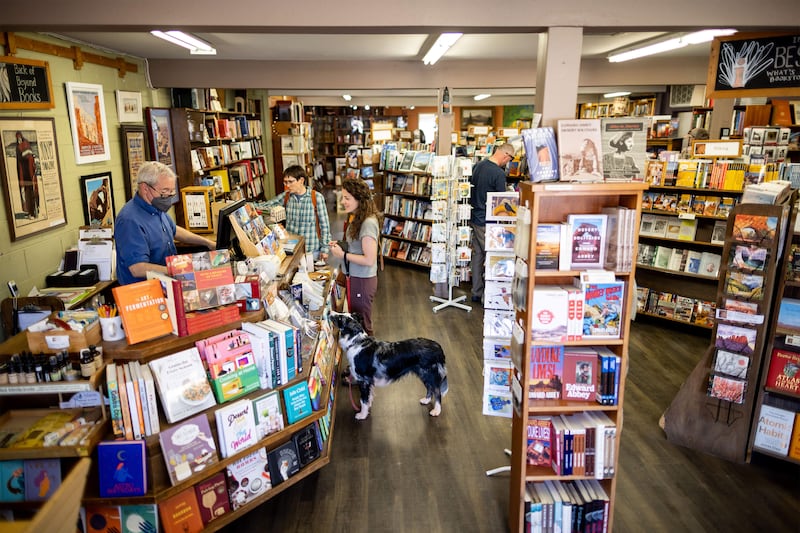
“It’s like a time capsule of the West,” Irvine says. “Both the myth of the West and the reality of the West. They do a remarkable job of dancing down the line.”
Writers like Williams credit Back of Beyond’s owner, Andy Nettell (who has owned the shop since 2004) and his employees with holding on to the community fixture — and with holding the line on the creep of Amazon by fervently supporting local readers and writers.
But change could be coming. The bookstore is for sale.
This change in ownership raises some big questions about the future: Can a bookstore devoted to writing about the West hold on in a changing West? And can the magic of a local bookshop sustain itself when so much of what we read and write and buy and think about today happens online?
Bookstores work in funny, nonlinear ways. In 1993, writer Craig Childs was on his way into Canyonlands for a season when he stopped into Back of Beyond looking for a notebook to take with him. “The shop is right in the middle of my home landscape and that’s where I first held that journal in my hands,” he says.
That dedication and desire to go beyond the norm of bookselling seeps out beyond the writing community to the readers in town and folks who are passing through.
That journal, a leather-bound Oberon, became the bones of his first book, “Stone Desert,” which kicked off three decades of writing about the natural world. “I realize that’s where book writing started for me,” he says. “If I hadn’t bought that journal for that winter in Canyonlands, I might not have written that first book, and then I may not have written a second book. Buying something from that place and taking it out into the world — it meant something different coming from there.”
This year, Torrey House Press is reissuing “Stone Desert” in an updated format that includes Childs’ sketches and portions of that initial journal. Nettell was the one who convinced Torrey to republish it. He saw how it was important in the canon of Western writing and how it carried on what Back of Beyond is always trying to do: to champion the weird, rebellious, overlooked stories about Utah and the western U.S.
There’s a sense of exploration when you walk into the shop. There’s a requisite stack of Abbey’s books near the front, but as you wander the shelves, toward the piles of old maps toward the back, you can page through obscure archeology books, adventure narratives and Native poetry.
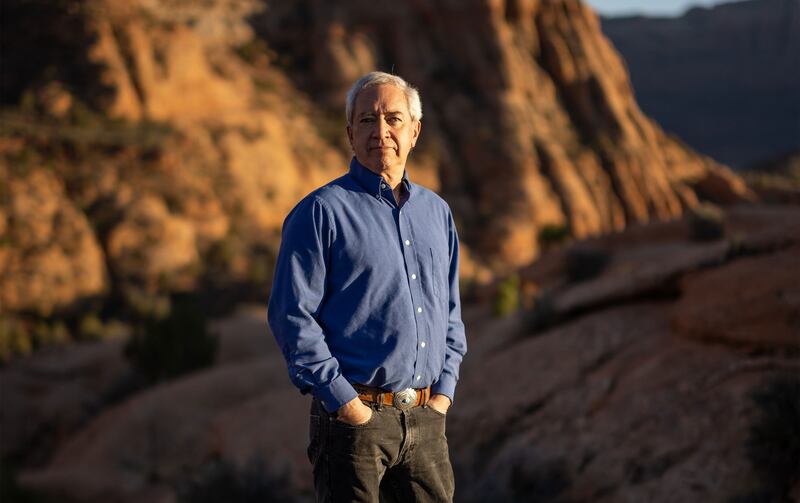
Nettell says that a sense of curation is the hard and the fun part of stocking a bookstore. It’s the real work of creating a space that functions as a community hub of education and culture. He says he tells his employees (many of whom are also artists or other creatives) that it’s their job to be both selective and diverse. They can’t pack everything into the shop, so they have to decide what’s worthy.
“I think it matters that there’s another person behind it. It feels like someone is asking the same questions about the landscapes that I’m asking,” says Childs, who also says that a lot of his Colorado Plateau research books for his archaeological travelogue “House of Rain” came from Back of Beyond.
Nettell started working at the bookstore part time when he was a ranger in Arches National Park, and he’s been involved since the beginning. In 2001, he opened Arches Book Company, a more traditional bookstore selling fiction and other wide-ranging writing across the street. In 2004, when Back of Beyond went up for sale, he bought it, too, and he ran them both until the 2008 recession, when he combined the two into Back of Beyond’s space.
He’s worked to navigate the perilous world of bookselling in an increasingly digital world by being regionally specific and bringing in rare volumes, while also trying to curate novels and books that might appeal to people on vacation. He’s had to grow, while also trying to hold onto the regionalism, and focus on the natural world that Back of Beyond has always had.
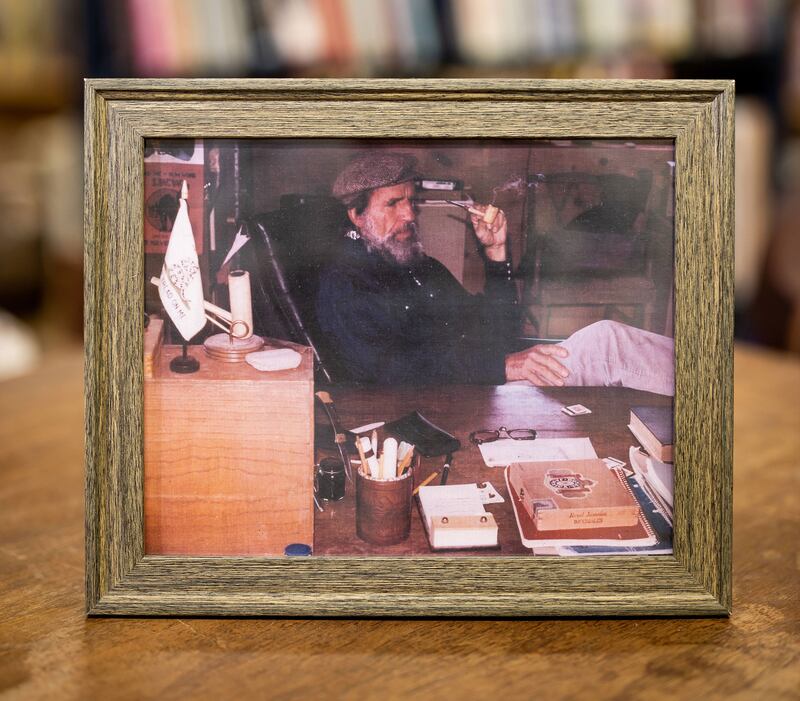
“We search high and low for regional titles,” he says. That might be a one-off from a guy who wants to put out a book on pottery design of the Southwest. Back of Beyond will probably be the only store that sells that book. The store has every flower guidebook that could conceivably sell for the Colorado Plateau, including the very unglamorous “Weeds of the West,” which sells for a whopping $125. “We may only sell a few of them a year, but it’s critical to represent them.”
They’re not just selling obscure books at Back of Beyond. They’re also helping to get them published by supporting local and regional writers.
Irvine says Nettell had no idea who she was when she stepped into the store and asked if he might read a draft of the book that became her memoir “Trespass,” which intertwines her personal and family history with Utah’s religious and natural history. She wanted a reader who would understand the background material, and she thought Nettell — who she says looked exhausted by another wannabe writer showing up with a manuscript — might be able to check her facts. She got much more than that.
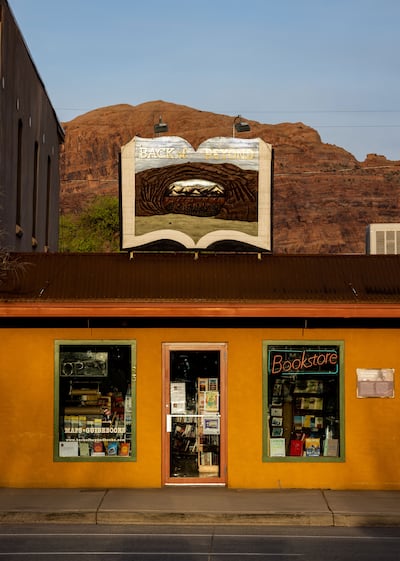
“A few weeks later he called me, and he said, ‘Come in, I just loved this book, how can I support you?’” she says. “And the next thing I know he had found my great-great-grandfather’s diary online and bought it for me. It changed my whole life.”
That dedication and desire to go beyond the norm of bookselling seeps out beyond the writing community to the readers in town and folks who are passing through. The goal is to use reading as a tool for open communication and learning. “We’re going to provide any book that anyone wants,” he says. “We try not to make any judgment for anyone who comes in the store, we just want to get any books in their hands.”
That’s not to say it hasn’t been without controversy. For instance, when Irvine released “Desert Cabal,” a rejoinder to “Desert Solitaire” on the 50th anniversary of its initial publication, there was blowback from both Western writers — including folks like Peacock — and from readers who didn’t like her criticism of Abbey’s approach to conservation (which was notably devoid of empathy), and his harsh words against ethnic groups and women, and rigid perspective on who deserved to enjoy the wilderness.
The reaction was heated, but Back of Beyond continued to promote and support the book because it thought it was an important part of the conversation about land use, access and accountability. Nettell says he thought it was important to stand by the book when it was under fire, because it was under fire. It underscored the point that the perspective was necessary. “In the end, that little book personifies what a bookstore should be — creating conversation,” he says. “We got a lot of grief, and Amy got a lot of angry letters, but we’ve also sold thousands of copies of that little book.”
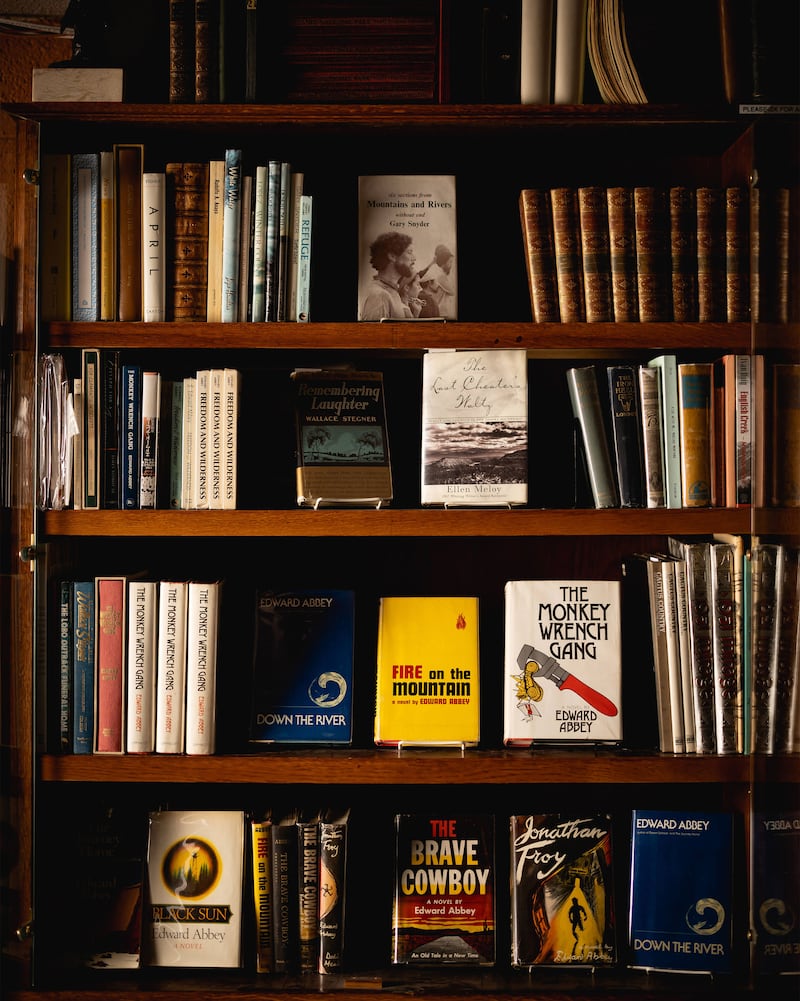
So what can a bookstore be for people, and for a place? Not every small bookstore has a Nettell, or a rarefied canon of local writing. But at their best, independent bookstores can encourage tough conversations, and create a touchpoint for writers and the communities they inhabit.
“Independent books stores are what I really thrive off of as a writer,” Childs says. “An independent bookstore is kind of a hub — not just literary, but also social — and for writers it’s twice as much.”
A 2020 working paper from the Harvard Business School found that some independent bookstores were able to fight the Amazonification of retail and the die-off of brick-and-mortar stores by offering three things online retailers couldn’t: community, curation and space for convening. “In the context of retail, seismic shifts are affecting the way consumers engage with online, big-box and local retailers. Independent bookstores provide a story of hope for community-led businesses,” the paper’s author, Ryan Raffelli, writes.
That’s ideally what Back of Beyond, and other local bookstores, can do. They can be both economic engines and incubators for ideas. But that doesn’t mean they’re not fragile or hard to run — especially in rural or transient communities like Moab. And it doesn’t mean it’s not hard work. According to the Harvard study, booksellers are also facing thin margins, rising rent costs and increasing wages in the face of inflation.
Nettell says he’s not leaving because of money — the store actually had its best sales year ever in 2021. But the battle to achieve those levels of sales and the dedication to the community and its writers has taken a tireless amount of work. In the transition, he’s worried about how — or if — that’s going to carry on. “If we’re going to call this a love story, small businesses need more love and support,” he says.
The hidden costs of losing small local businesses like bookstores can be seen through environmental (shipping and big-box footprints) and economic perspectives (buying and selling within a municipal economy) — but there’s also the cultural values these entities provide. To Nettell, this would be the greatest loss of all.
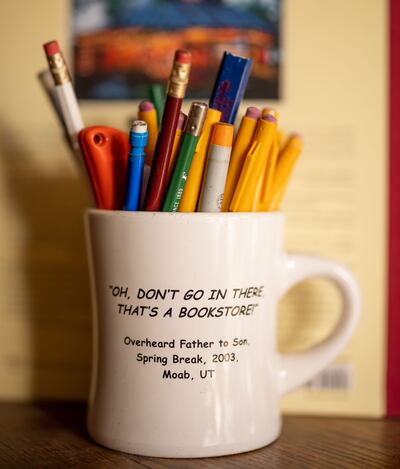
“I think communities need a couple of things to keep them whole,” he says. “They need a good school system, a network of spiritual options and I think literature and the arts are kind of the third leg of a foundation. I’m biased, but I think a town has no soul without it.”
He hopes the incoming new owner, former Moab city manager David Everitt (whom he’s known since the mid-’90s), will hold on to that soul and carry on the decadeslong literary tradition he’s been shepherding. With a new owner things will change — and change is often a bumpy ride — but the hope remains that the evolution will be good.
Back of Beyond, in its microcosm of Moab, frames a larger example of how connecting to a place can show us how to live in the wider world. Hopefully it — and other small businesses like it — can continue to do so. “I’d like to think that the way it’s been built is sturdy enough to endure because we need to continue to be able to see things critically,” Irvine says. “It’s a place that teaches us, through books, how we keep a civil society.”
This story appears in the June issue of Deseret Magazine. Learn more about how to subscribe.

